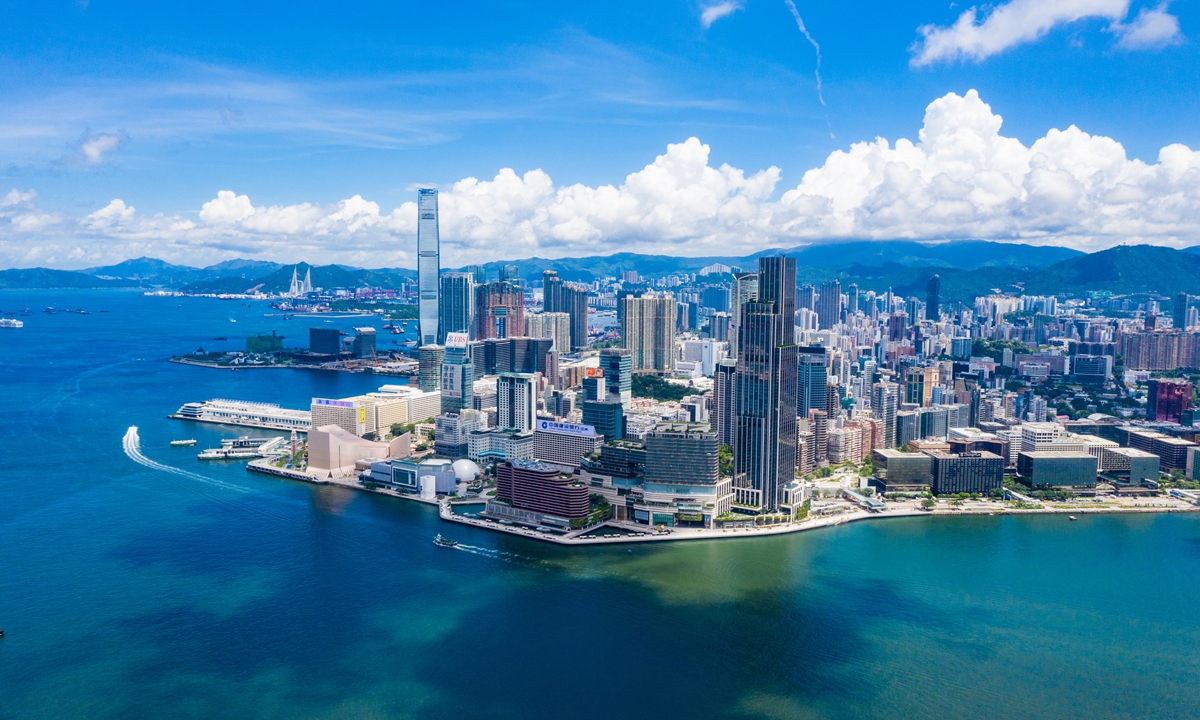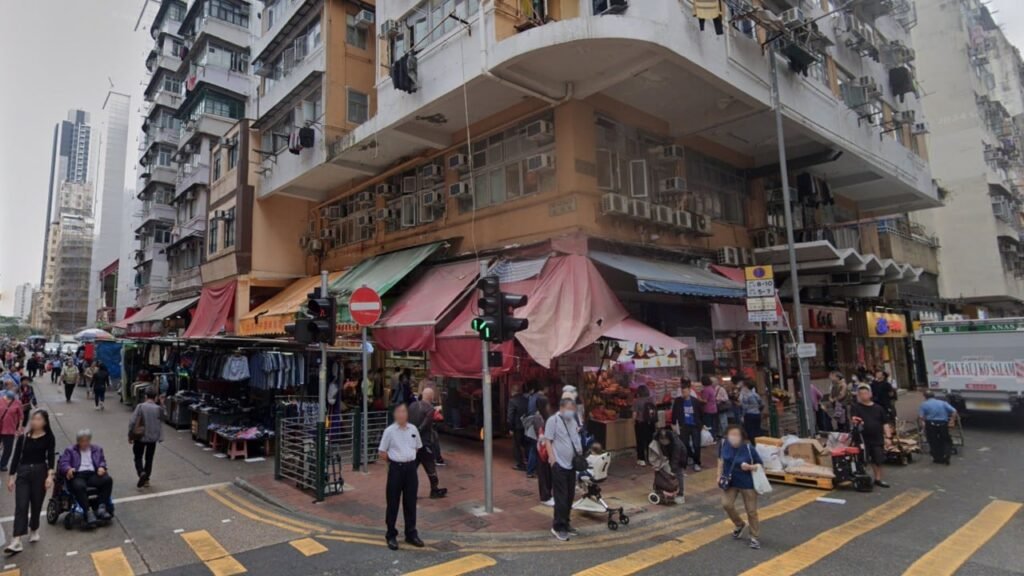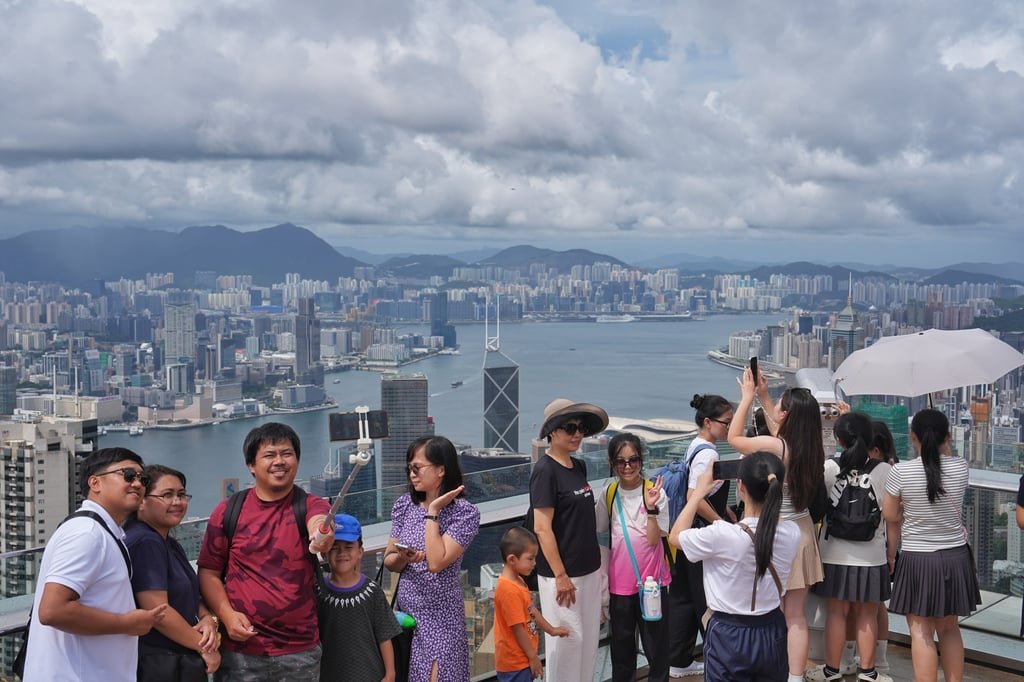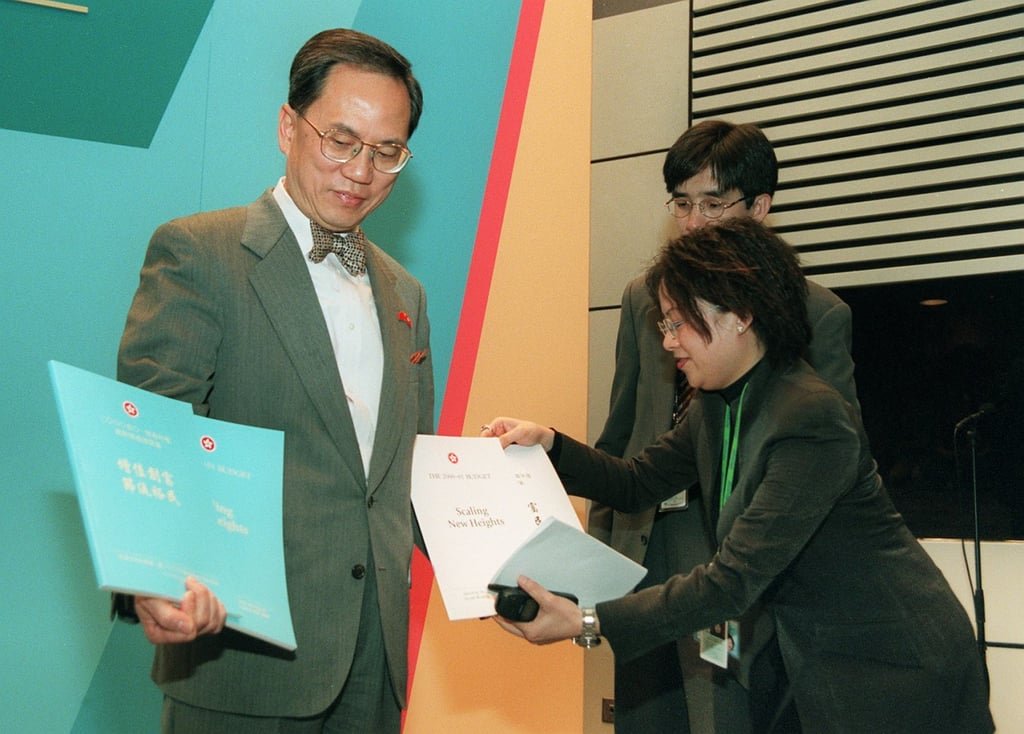
A view of Kowloon City, Hong Kong Photo: VCG
Paul Chan, financial secretary of the Hong Kong Special Administrative Region (HKSAR) government, said in his blog on Sunday that Hong Kong’s economy has maintained a steady recovery trajectory, with the second-quarter GDP figure expected to show the 10th consecutive quarter of growth, driven by robust exports, increased investment, and a rebound in private consumption.
This resilience underscores Hong Kong’s enduring economic vitality despite the complex and volatile global environment. Building on the 2.5 percent economic expansion in 2024, Hong Kong’s GDP expanded by 3.1 percent in the first quarter of this year.
The GDP figure is scheduled for release this week.
With strong support from the central government and concerted efforts across various sectors, several positive trends have emerged: sustained economic growth, continuous capital inflows, a stable property market, improved labor productivity, and rising median employee incomes. These developments have enhanced Hong Kong’s overall competitiveness and attractiveness, Chan said.
Economic momentum, combined with capital inflows, a stock market recovery and property market stabilization, along with government initiatives to promote major events and high-value tourism, have supported private consumption and overall market sentiment.
Retail sales in May showed the first year-on-year increase in 14 months, indicating initial signs of market stabilization, with June figures also expected to show growth. After four consecutive quarters of decline, private consumption is projected to rebound in the second quarter, Chan said.
Commenting on the job market, Chen said that overall, Hong Kong’s employment remains stable with solid income growth. The median monthly income for full-time employees rose 6.8 percent year-on-year to HK$25,000 ($3,184) from March to May.
Emerging industries are accelerating their development while traditional sectors are actively transforming, with both creating new employment opportunities and offering improved compensation packages.
The HKSAR government has been actively developing new economic growth areas, particularly supporting innovation and technology development to capitalize on opportunities created by technological advancement. By attracting more enterprises and facilitating the expansion of local businesses, it aims to create more high-quality, skilled jobs while supporting demand for other types of positions.
Concurrent efforts include exploring new overseas markets, establishing new partnerships, and developing supply chain management capabilities to help Hong Kong seize development opportunities amid complex geopolitical landscapes.
Chan noted that these initiatives, together with the growing number of enterprises choosing to establish or expand their operations in Hong Kong, are expected to further strengthen the city’s competitiveness and provide sustained support to the job market.
Global Times








